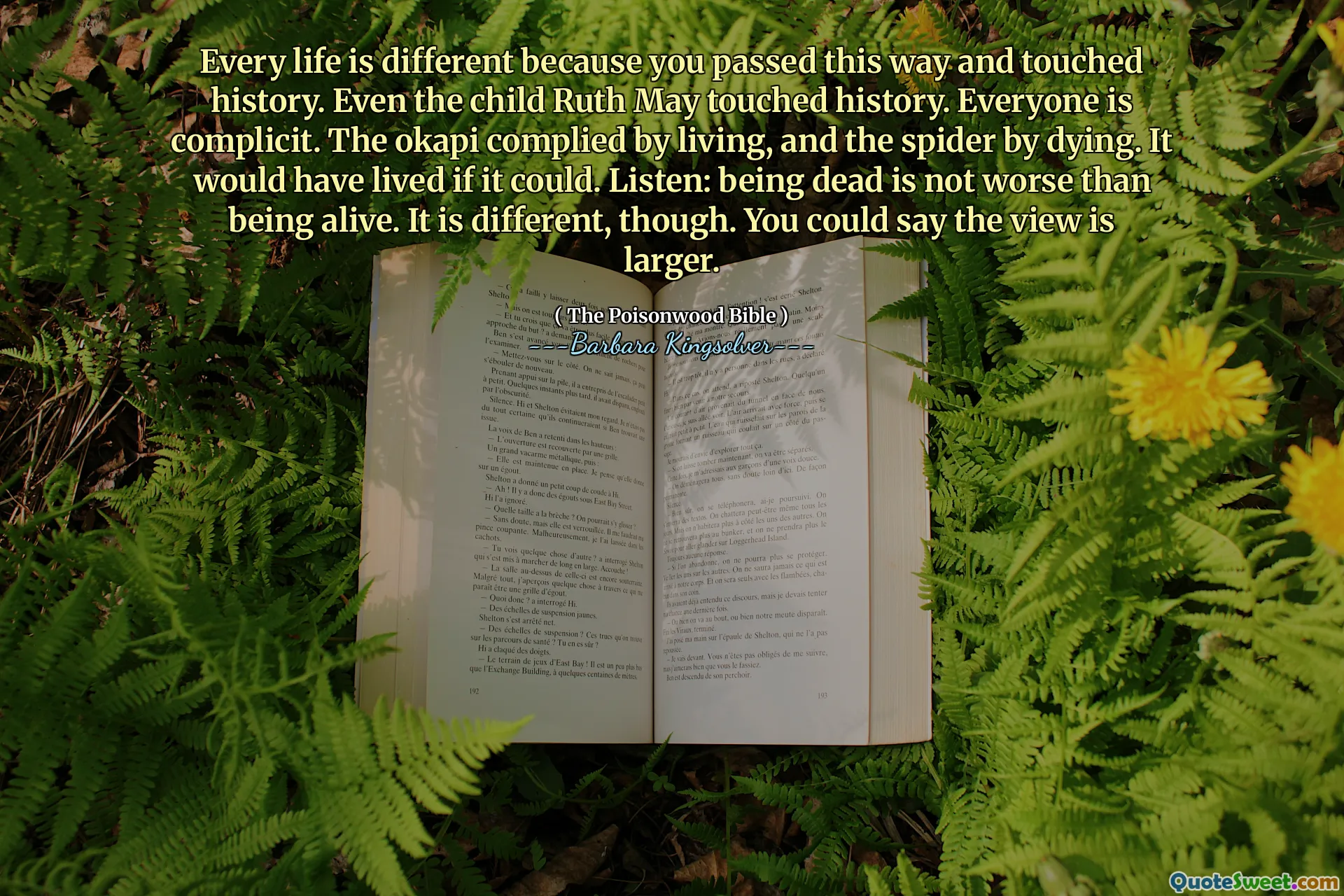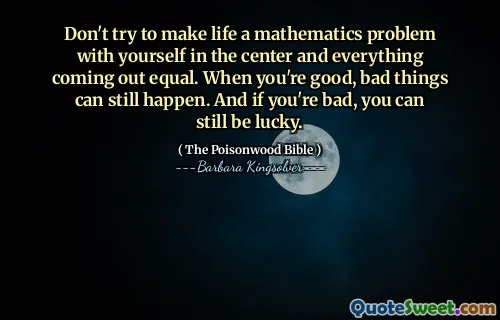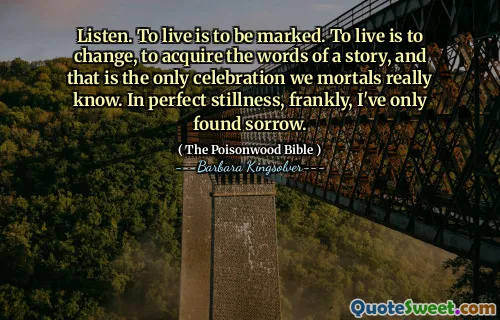
Every life is different because you passed this way and touched history. Even the child Ruth May touched history. Everyone is complicit. The okapi complied by living, and the spider by dying. It would have lived if it could. Listen: being dead is not worse than being alive. It is different, though. You could say the view is larger.
In "The Poisonwood Bible," author Barbara Kingsolver explores the notion that every individual impacts history, regardless of how seemingly small their actions might be. The text suggests that even the smallest of lives, like that of Ruth May, contribute to the broader tapestry of existence. This interconnectedness implies that everyone, including animals and people alike, plays a role in the unfolding of events, reinforcing the idea that every life, no matter how brief, carries significance.
Kingsolver further contemplates the concept of life and death, indicating that while being dead is distinct from being alive, it is not inherently worse. Death offers a different perspective, perhaps allowing one to see a larger view of existence. This reflection invites readers to consider the complexities of life, the inevitable connections among all beings, and the varied experiences that shape our understanding of mortality and legacy.











